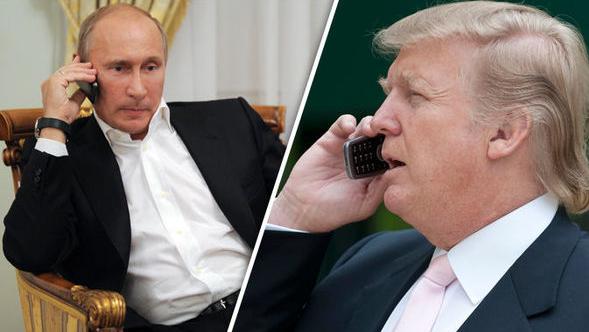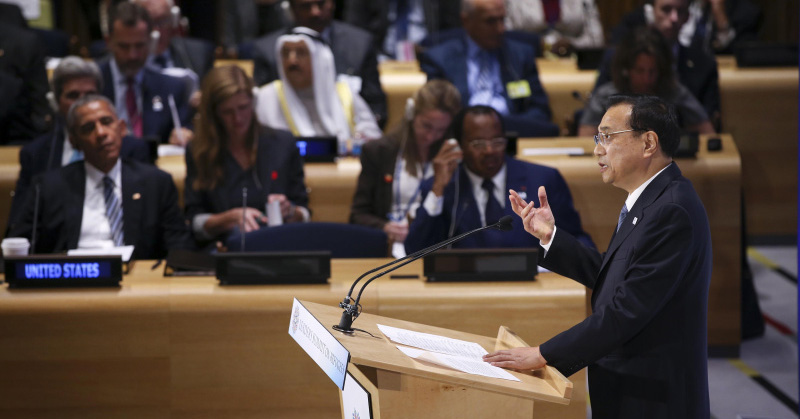
Feng Shaolei, Dean, School of Advanced International and Area Studies
Feb 10, 2017
As the three-power “triangle” re-adjusts, China’s first priority is to be confident in the diplomatic achievements it has made over the past few decades. Putin has recently pledged to “cherish the Russia-China relationship,” and the deep foundation of China-US relations that has been laid over recent years should be solid enough to survive short-term pressures.
Richard Weitz, Senior Fellow, Hudson Institute
Jan 13, 2017
This year could see a major shakeup in the China-U.S. interaction in Afghanistan and Central Asia. Until now, the relationships in these regions between China and the United States, and between China and Russia, has been better than the Russian-American rivalry in Central Asia. But if the new Trump administration succeeds in improving Russian-U.S. relations, or decides to cut back on the U.S. military commitment in Afghanistan, China’s bargaining leverage vis-à-vis Russia in Central Asia will decline.
Ma Shikun, Senior Journalist, the People’s Daily
Jan 19, 2017
Unlike in the confrontation 1970s, China and Russia have established a comprehensive strategic partnership and see eye-to-eye on key international issues. The US and Russia, meanwhile, have many strategic conflicts and are unlikely to develop a close relationship, despite President-elect Trump’s possible wishful thinking.

Zhao Tong, Fellow, Carnegie–Tsinghua Center for Global Policy
Jan 11, 2017
Generations of Chinese leaders have said China aims to have the minimum capability required to launch an effective nuclear counterattack. From the long-term perspective, global disarmament has always been China’s goal, and the country should lead the way to keep other major powers faithful to that goal.
Yu Sui, Professor, China Center for Contemporary World Studies
Dec 07, 2016
The relations among China, Russia and the US have direct and significant bearing on the global situation. In their own self-interest, the three countries should form a kind of synergy to promote the development of the global economy, cope with natural disasters, fight against terrorism, and forge and defend a just and rational international order.
Richard Weitz, Senior Fellow, Hudson Institute
Nov 14, 2016
China has accepted some gains from the world order established by the United States, but they disapprove of how the structure reflects exclusively American values and is buttressed “by a military alignment, which does not take into consideration the security interests of others.” Some Chinese commentators can also see a great benefit to aligning with Russia to offset the U.S.; however, uncertainty about regional powers and IGO influence remains pivotal to the current great-power structure.
Yin Chengde, Research Fellow, China Foundation for International Studies
Nov 15, 2016
Alignment and bloc politics would lead to standoff and confrontation, and would be harmful to regional and global peace, while the non-alignment policy conforms to the trend of the times and the fundamental interests of China. Therefore, non-alignment is the natural and inevitable choice of the country. If the US seeks to cooperate with China and Russia, all parties would benefit.

Richard Weitz, Senior Fellow, Hudson Institute
Oct 13, 2016
Recent speeches given to the UN General Assembly by the U.S. and China illustrate sharp differences in areas such as domestic political systems, appropriate roles and relationships in world politics, and dispute resolution. Russia backed China on many points that the U.S. opposes. These disagreements will continue to play a large role in shaping the international arena.
Chen Xiangyang, Director and Research Professor, CICIR
Jul 03, 2015
The media and public opinion have become the new focuses of major-power competition, as the US struggles to maintain a supreme position in the current world order.
Richard Weitz, Senior Fellow, Hudson Institute
Jun 26, 2015
As permanent members of the UN Security Council, Chinese and U.S. leaders should look beyond the recent deadlocked Nuclear Non-Proliferation Treaty and use their next U.S.-China Strategic and Economic Dialogue to make further progress in promoting nuclear disarmament, nuclear non-proliferation, and supporting the safe and secure peaceful use of nuclear energy.
Back to Top

- China-US Focus builds trust and understanding between the U.S. and China through open dialogue among thought leaders.
- Our Offerings
- Topics
- Videos
- Podcasts
- Columnists
- Research Reports
- Focus Digest
- Stay Connected
-
Thanks for signing up!
- Get the latest stories from China-US Focus weekly.